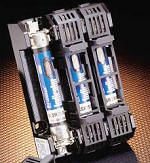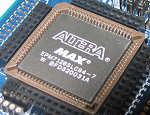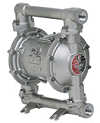 Georgia lawyer Nyema E. Weli entered into a settlement agreement (link warning — see below) with the Bureau of Industry and Security (BIS) on June 27, 2007, arising out of allegations by BIS that he had attempted to export five armored vehicles to Nigeria in July 2005 in violation of section 764.2(c) of the Export Administration Regulations. Mr. Weli was also charged with violating section 764.2(i) for failing to keep records relating to the attempted export.
Georgia lawyer Nyema E. Weli entered into a settlement agreement (link warning — see below) with the Bureau of Industry and Security (BIS) on June 27, 2007, arising out of allegations by BIS that he had attempted to export five armored vehicles to Nigeria in July 2005 in violation of section 764.2(c) of the Export Administration Regulations. Mr. Weli was also charged with violating section 764.2(i) for failing to keep records relating to the attempted export.
The alleged violations were not voluntarily disclosed to BIS, which is not surprising, since you have to imagine that someone tipped off BIS or Customs long before the armored vehicles made it to the border. After all, exporting armored vehicles is not something that can be easily concealed.
You might think that an attempted export of armored vehicles to a country where there is an armed insurrection in the Niger Delta, particularly where there wasn’t a voluntary disclosure, would result in a substantial fine. But you would be wrong. Weli’s legal skills (that apparently failed him when he decided to get in the export business) came to his aid in the penalty proceedings and he somehow or other talked BIS down to the paltry sum of $2,500 as the agreed penalty. (Granted there is also a $30,000 kicker if he commits another export violation in the year following the settlement agreement or doesn’t pay the $2,500 penalty on time).
So let’s recap the latest two enforcement actions by BIS. On the one hand, we have a company that voluntarily discloses exports of ceramic yarn in amounts too small to be of use in military or space applications which is fined $225,000. On the other hand, we have a lawyer who gets caught red-handed attempting to export armored vehicles to a country with an ongoing insurrection in its oil-producing regions and who is fined $2,500. What are we missing here?

 Posted by
Posted by  Category:
Category: 


 The Bureau of Industry and Security (BIS) released last week a
The Bureau of Industry and Security (BIS) released last week a  BIS recently released a
BIS recently released a  Last week we
Last week we 

